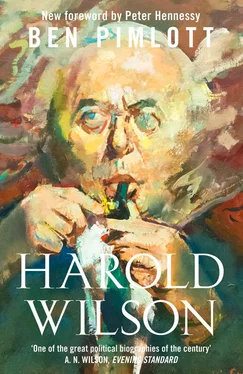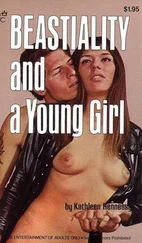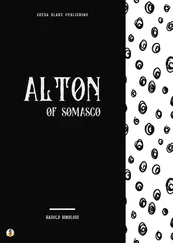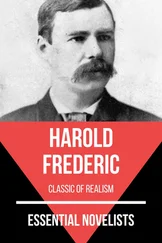Harold’s greatest solace was work. As a history undergraduate, he had to take prelims at the end of his first term, based on set books which included works in medieval Latin, and an economics textbook, Public Finance , by a former LSE lecturer called Hugh Dalton. Though the pass standard was not high, the quantity of material was large. ‘I doubt if I have worked so hard in my life,’ he said later. 16He was an early riser. Steel used sometimes to meet him in the bath house before breakfast – he would be conscious of Harold’s presence because his friend would sing the same songs repeatedly, at the top of his voice. He also used to see him regularly at dinner, where they sat together at the exhibitioners’ table. ‘Harold used to study a great deal, and then have a glass of beer,’ recalls Steel. ‘We all knew that he coped very well with essay writing and that he read voraciously.’ 17
Apart from the occasional beer, there was little time for anything else, except sport. At school he had been a keen long-distance runner. At Oxford he played football in the college second team, and tennis, even in winter. But athletics was his real passion. He ran on the Iffley Road track most afternoons. ‘He had an obsession about physical fitness,’ says Sharpe. 18He was a half-miler, though he sometimes ran longer distances as well. One such occasion, described in a letter, occurred in his second term. ‘I’ve some very good news,’ he wrote to his parents:
Just after breakfast this morning (Saturday) the cross-country captain came in & asked me to run for the Varsity Second Team v. Reading A. C. (I tried to send you a p.c. so you would know Saturday night, but couldn’t catch the post).
Well I ran: I started badly & after 2 miles was 14th out of a field of 16. After we had topped Shotover Hill, I got my second wind & moved a lot better. I caught up 7 places in the last mile – & finished 7th (the third Oxford man home…)…
After that we were taken in a motor coach to the city & had tea in a very posh restaurant – all of us on one table in a private room: the captains made speeches etc. I felt very thrilled about it all. So I’ve represented the Varsity. If I could only get my cross-country really well up, I might get my half-blue next year.
… Still feeling very thrilled; hope you’re also duly thrilled. 19
Active politics – the precocious dream of his adolescence – had a lower priority. Nevertheless, the interest was still there. In his first week, he joined the League of Nations Union, and was approached by the Secretary of the University Labour Club, ‘a very decent fellow from Wallasey’. ‘I think I shall join the Lab. Club’, he wrote home, ‘– the sub’s only 2/6. I shan’t go to many meetings, just to those addressed by G. D. H. Cole and Stafford Cripps I think – both this term.’ He joined the Oxford Union on similar grounds, ‘partly on account of debates, hearing important men – Cabinet Ministers etc.’, but more because of the library. 20
He made extensive use of the Union to take out books and as a place to work, and attended debates without taking part in them. The Labour Club, however, was a bitter disappointment. His first experience of it put him off. It struck him, he wrote home after attending a meeting a few weeks after going up, ‘as very petty: squabbling about tiffs with other sections of the labour party instead of getting down to something concrete’. 21Many years later, as a well-known politician, he elaborated on this point, maintaining that he ‘could not stomach all those Marxist public school products rambling on about the exploited workers and the need for a socialist revolution’. 22This became his standard excuse for not having taken part in Labour politics as a student. It was also a way of indicating to people who equated Bevanism with Communism that he had never belonged to the fellow-travelling left wing, while giving a side-swipe at the Labour Party’s upper-middle-class intellectuals, many of whom had started on the Left before moving rightwards.
The obvious explanation for Harold’s lack of political involvement in his first term was that he was not sufficiently interested and, with an exam a few weeks away, he had too much to do. These points are made in a very early, pencil-written note home, which accompanied his first laundry parcel, before he had yet attended a single Labour meeting. ‘Cole is speaking at the Labour Club to-night but I don’t think I’ll go,’ he wrote. ‘I’ll wait till next term for that sort of thing.’ He added a sentence which indicated the first call on his attention, after work: ‘I’ve been running twice at Iffley Road – nice track.’ 23Yet the reason he gave later is also convincing. For his arrival at Oxford happened to coincide with a moment in undergraduate politics when the student Left was as febrile, and as out of touch with reality, as it ever became in the course of a heady decade. The Labour Club in 1934 was the crucible of fashion. But fashion was something to which Harold, sometimes to the irritation or scorn of contemporaries, was unusually immune.
‘In recent months there have been unmistakable signs of an increase of political consciousness amongst the undergraduates of Oxford and Cambridge,’ one observer noted at the beginning of 1934, before Harold went up, adding that political activity had been ‘largely confined to socialists and, to an increasing degree, to communists.’ 24By the time of Harold’s arrival, a fertile generation of left-wing undergraduates that had included Barbara Betts (later Castle), Anthony Greenwood, Richard Crossman, Patrick Gordon Walker and Michael Stewart – all future members of Harold’s Cabinets – was just ending. But the memory of them was fresh. ‘Consciousness’ was the vogue word. ‘Oxford was very, very politically conscious,’ recalls a friend of Barbara Betts. 25An important raiser of consciousness, and prophet of Oxford socialism, was G. D. H. Cole, an ascetic thinker whose First World War semi-syndicalist ideas had given way to a Fabian, pragmatic approach, though still with a Utopian goal. In 1930–1, Cole had gathered together a group of young disciples at Oxford which included Hugh Gaitskell, a WEA lecturer who had recently graduated from New College, to help set up two closely linked ginger groups or (as they would now be called) think tanks: the New Fabian Research Bureau and the Society for Socialist Inquiry and Propaganda (which in October 1932 merged with the pro-Labour rump of the old ILP to form the left-wing Socialist League). There was much excitement over these developments in Oxford, where Cole’s admirers were encouraged to see themselves as the vanguard of Labour’s intellectual revival.
The MacDonald and Snowden betrayal, and the subsequent Labour collapse, acted as the spur. ‘While the events of autumn 1931 lost thousands of voters to the Labour Party in the country as a whole’, recorded two young chroniclers of the University’s politics a couple of years later, ‘in Oxford the rapid growth of socialist opinion suffered no comparable set-back.’ By the end of 1932 the Labour Club had attained a record membership of almost five hundred, and a ‘Socialist Dons’ Luncheon Club’, with thirty or forty members, was meeting weekly. 26The upward curve of left-wing activity continued in 1933 and 1934, the year of Harold’s arrival at Jesus. As interest increased, however, so the orientation changed, away from the careful programme-building of Cole, and towards the international vistas and harsh dogmatism of King Street and Moscow.
Communism began to be important in Oxford in 1931, when some undergraduates set up the October Club, a Communist-front body whose secret aim was to control as much of Oxford left-wing politics as possible. Within a year, the Club had a membership of 300, which included many people who were also in the Labour Club. When Harold went up in 1934, the October Club was at the peak of its recruiting zeal: one of Harold’s first decisions on taking up residence was to reject the overtures of an Octobrist who wanted him to join, explaining politely but firmly (as Harold related in a letter to Marjorie), ‘I didn’t want to.’ 27Many others, however, became members of both the October and the Labour Clubs, either gullibly or sympathizing with the Communist point of view.
Читать дальше











